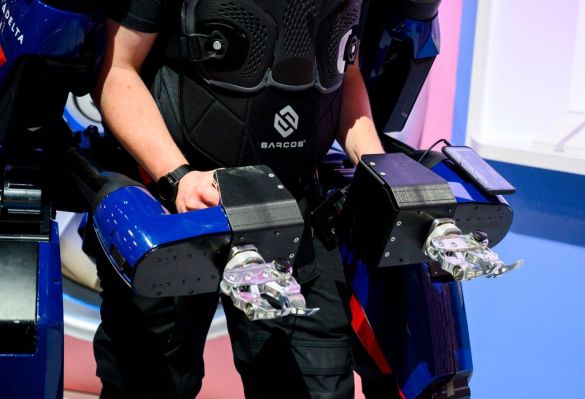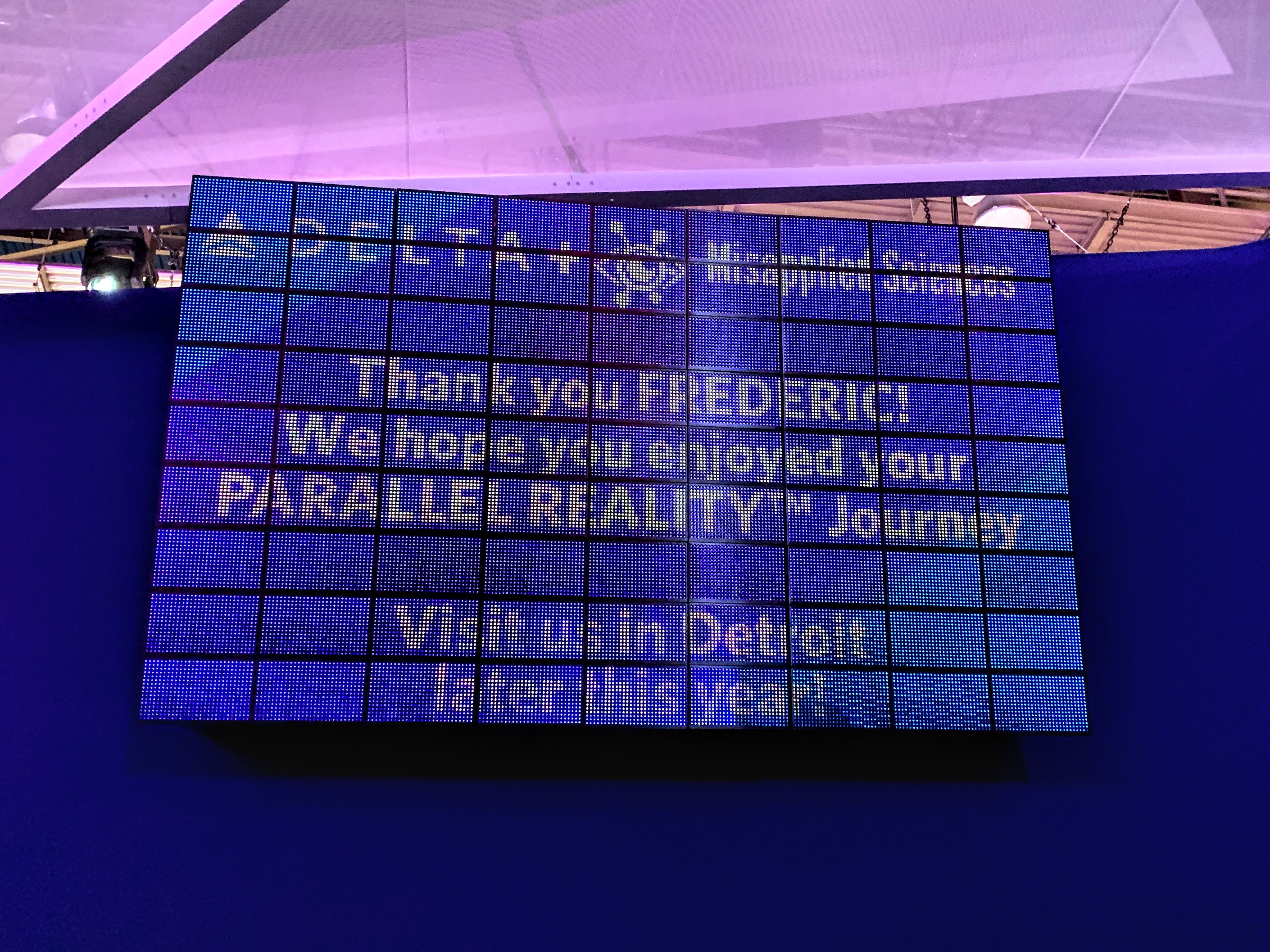For the first time, this year Delta Air Lines had a large presence at CES. The carrier used much of its space to highlight the “parallel reality” screens developed by Misapplied Sciences and Sarcos Robotics, which brought its latest Guardian exoskeleton. At the show, I sat down with COO Gil West, an industry veteran with years of experience at a number of airlines and airplane manufacturers, to talk about how the company works with these startups.
Like all large companies, Delta has gone through a bit of a digital transformation in recent years by rebuilding a lot of the technical infrastructure that powers its internal and external services (though like all airlines, it also still has plenty of legacy tech that is hard to replace). This work enabled the company to move faster, rethink a lot of its processes and heightened the reality that a lot of this innovation has to come from outside the company.
“If you think about where we are as a world right now, it’s a Renaissance period for transportation,” West said. “Now, fortunately, we’re right in the middle of it, but if you think about the different modes of transportation and autonomous and electrification — and the technologies like AI and ML — everything is converging. There’s truly, I think, a transportation revolution — and we’ll play in it.
To do so, though, Delta needs to partner with others because while it has the ability to do what it does well in the aviation industry, it’s only able to influence the rest of the industry through partnerships. “We’re in a position where we can really partner deeply and then, through venture capital and through partnerships, we can not just be a part of the transformation but help shape a lot,” West said.
Delta is taking what it’s learned from working as part of an alliance into other modes of transportation; two recent examples are the airline’s work with Lyft, which is going to get a pretty deep integration into the Delta app, as well as its work with private jet startup Wheels Up, which Delta is selling its Delta Private Jets business to while also acquiring a major stake in the company, becoming Wheels Up’s largest outside shareholder.
“That’s another example of another mode of transportation — albeit in aircraft — where we’re able to extend our network,” West said.
Delta regularly invests in startups; West noted that the airline has invested in Misapplied Sciences and is in the process of investing in Sarcos Robotics.
“But we’re not doing for the return on capital investment. Our return on those kinds of investments is really through innovation,” he said. “So we’re able to innovate and partner and do things and it works on two levels: one is by making an investment, it cements the partnership with the other company, so we’re really partners, we believe in you and we have a piece in your success. At the same time, internally, it works very powerfully for us, because as a big company, it’s hard to innovate. You have inertia that’s hard to overcome.”
That, of course, is a problem every large enterprise faces. West, somewhat unsurprisingly, said Delta is a very good partner. “We give more than we take. It’s an ethos we have with our partnership,” he said. “But also, when we make an investment, internally, our team realizes this isn’t a supplier or a vendor to us — this is a partner. And it’s an important distinction because within the team, then they realize they’re on our side, let’s work with them. So we’re not negotiating with them, we’re collaborating with them.”
In the early days, this was a hard sell inside the company, he acknowledged. “We’re running an airline, right? We don’t want to take our eyes off that ball.” And early on, people inside the company worried that some of these investments and partnerships were merely distractions from Delta’s core business. Today, the company sees innovation as a key part of its mission, an ethos symbolized by Delta’s CES presence — which also drives home this point internally, said West.
One thing he stressed is that the customer is at the core of everything Delta does. He doesn’t believe in innovating for the sake of innovating; instead, the focus is always on the application. “We’re not chasing shiny objects, but it’s really about enhancing the customer experience,” he said. “It’s about a deeper philosophy that says: we’re going to continue to enhance the customer experience.”
The investment in Misapplied Science is a good example. The company’s Parallel Reality screen, which I got to experience at CES, offers viewers a personalized screen as they walk through the airport — all while another 100 people are looking at the same screen and seeing their personalized flight information.
Over the years, Delta also learned a lot about how to work best with these companies. “At one time, we were trying to drive our contractual requirements to them, which was just ludicrous,” he admitted. “So now we’ve adapted and make equity investments or contractual deals with them and say very flexible as we work with them.”
Delta, too, has its own accelerator program that it uses to create startups within its own existing entities, with Delta Flight Products being one of those.
The company, of course, isn’t doing this out of the goodness of its corporate heart. The airline business is often cutthroat, margins can be low and many customers choose flights solely based on price.
“Post-consolidating in the U.S., we took an unproven path at the time. We said: we are consciously going to differentiate ourselves on customer experience.” At the time, the focus was mostly on operations and running flight on time, but over time, that has expanded into a differentiated customer experience. West said this means Delta doesn’t always offer the cheapest flights, but the company hopes that fliers will choose it because it offers a better experience. The same, he believes holds true for startups that may want to partner with Delta as well.

